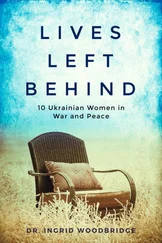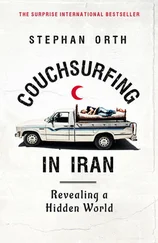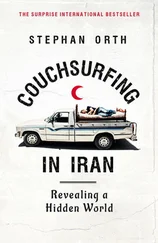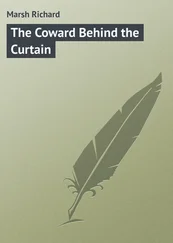At the moment House for Everyone is located in the Babayevsky District in northeastern Astrakhan, which I reach after a four-and-a-half-hour bus trip from Elista. Krotov himself isn’t managing this project, but one of his supporters, twenty-four-year-old Alexei, is. He sent me instructions on how to get there from downtown, seventeen rubles by bus. I’m pretty tired and briefly consider taking a taxi (five hundred rubles for a twenty-minute trip, roughly the equivalent of eight U.S. dollars), but that wouldn’t feel right on the way to visit such dedicated travelers.
Thanks to an app called Maps.me, developed by a Russian programmer, journeys on public transport to a foreign destination are not as exciting as they were ten years ago. Then, you had to continually pester fellow passengers with questions—are we already there, how far is it—while trying to decipher signposts outside. Nowadays I just look at my cell phone.
I download the map to my next destination from Maps.me when I have a wireless connection. Then a reliable blue arrow shows where I am at that moment. This works as long as my cell phone reception does, and even sometimes, as if by magic, in dead spots. Getting really lost was much easier in the old days.
“Nowadays I just look at my cell phone,” I admit, is not a pretty sentence. Where is the interaction with the locals, the alert looking through windows, the total immersion in a country without digital distractions? How on earth did a smartphone with a local SIM card become an indispensable part of one’s luggage when traveling? One hundred and thirteen grams of stainless steel, microchips, and plastic have replaced telephone kiosks, travel agencies, encyclopedias, maps, dictionaries, camcorders, compasses, notepads, newspapers, and internet cafés. Believe me, Marco Polo or Roald Amundsen would have packed an iPhone or a Samsung Galaxy had they been available. Both of them traveled with the most modern equipment of their times.
Still, sometimes I do mourn the good old days of “real” adventure; but then I wipe the teardrops off the touchscreen, scroll through my contacts, and remember all those fantastic memories from spending time with people I would never have met without the internet. In purely mathematical terms it’s worth the effort. I spend more hours with people I have found online than I lose looking for them, even though on average I have to send out three couch requests for every positive answer. But as soon as I enter the apartment of the next host, I turn my cell phone off.
ASTRAKHAN IS ONthe Volga and looks like most other Russian cities: castle-like train station, a couple of onion-like domes, a large “Great Patriotic War” memorial park and lots of prefab buildings. I can’t help thinking of the 1975 movie The Irony of Fate , which is always shown on New Year’s Day in Russia. It’s about a group of friends meeting in a banya , a public sauna, to celebrate New Year’s Eve; they get very drunk and mistakenly put the wrong person on a plane. The next morning, the main character wakes up in Leningrad instead of Moscow and doesn’t notice the slightest difference. The housing blocks, the street names, the apartments, even the furniture, are all exactly the same as in his home city; even the front door key fits.
Unlike the guy in the movie, I’m thankfully in the right city; the instructions have brought me to my destination. After a twenty-minute bus trip, a ten-minute walk, eight floors up in an elevator, and one floor using the stairway (for some inexplicable reason the elevator doesn’t go all the way to the top), Alexei opens the door. “Ninety-two square meters, 12,000 rubles a month,” he says proudly, showing me around. There is a living room, a communal kitchen, a room for Alexei and his wife, three rooms with beds, and the possibility of sleeping on the floor. Beige and shades of brown dominate; the floorboards creak musically; the electric cables on the walls and ceilings look horrifyingly improvised. If we were in Berlin a realtor would describe it as “a charming historic building ideal for fans of ‘ostalgia’”—the German concept of nostalgia for aspects of life in East Germany—and be overwhelmed with offers. There are travel photos on the walls featuring Alexei, or Anton Krotov, or both of them together, in distant countries: Afghanistan, Pakistan, Bangladesh, India, China.
Alexei, a burly guy with short hair and a goatee, is wearing a T-shirt depicting the flags of the ten member countries of the Association of Southeast Asian Nations (ASEAN). “I’ve been to all of them except Brunei,” he declares proudly. All in all he has visited thirty-nine countries and seventy-nine of Russia’s eighty-five regions. He likes talking about where it is easiest to apply for a visa. Laos and Vietnam are no problem at all for Russian travelers, as they were former allies of the Communists. Germany, on the other hand, is particularly difficult, and Australia is a tough nut as well. Alexei is about to start a small lecture tour with travel tips, has written a book about Burma, and sometimes works as a tour guide on Phuket in Thailand.
Gradually I get to know my fellow lodgers, who greet me en passant. At the moment there are three Russian travelers here along with Alexei and his wife, Alena, who married shortly after her eighteenth birthday and have always traveled together since then. He tells me that Morocco, Senegal, and Gabon are their next destinations. But first of all he is caretaking the House for Everyone for another two months.
On our first tour of the premises I notice many signs tacked to the walls with the house rules.
No noise, please!
Don’t leave the floor wet!
Save water!
How to wash dishes: Just wash everything you see, thanks!
Don’t speak in the hallway! Walk lightly!
Don’t smoke! Churchill was a smoker—dead. Lenin never smoked—he lives on.
Use the stairs! The elevator often breaks down and disturbs the peace.
Don’t wash feet in the sinks!
Don’t leave hair in the sinks! There are no servants here!
Maximum of five minutes in the john, maximum of ten minutes in the shower!
No stamping of feet!
After 10:00 PM talk quietly, after 11:00 PM complete quiet!
When at 10:30 I drop my SLR and it lands to the floor with a crash, I feel like a troublemaker; at 11:37 as I sneak into the bathroom to brush my teeth, I feel like a criminal.
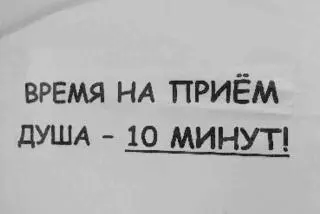
Truth No. 7:
In practice, socialism means more constraints than the theory suggests.
Was I enthusing earlier about smartphones replacing travel agencies? A Russian-language beginner looking for a real challenge should try booking a train ticket on a Russian website on a cell phone. With the aid of Google Translate it’s perfectly feasible, but very time-consuming.
In the process I learn the following vocabulary: Отчество (middle name). Иностранный Документ (foreign passport). Дата рождения (date of birth). Места для пассажиров с животными (seats for passengers with pets). Купить билеты (buy tickets). Резервирование билетов (reserve tickets). Ошибка (error). платеж не прошел (payment failed). Shit. Back to the beginning. On the second attempt, again my credit card is not accepted. The promise of saving time by not having to line up at a ticket office had proved too good to be true. I take a bus to the station, and after waiting some forty minutes I finally have my plazkart ticket for the night train to Volgograd in my hands, carriage 2, bed 16.
Читать дальше
![Stephan Orth Behind Putin's Curtain: Friendships and Misadventures Inside Russia [aka Couchsurfing in Russia] обложка книги](/books/415210/stephan-orth-behind-putin-s-curtain-friendships-a-cover.webp)



